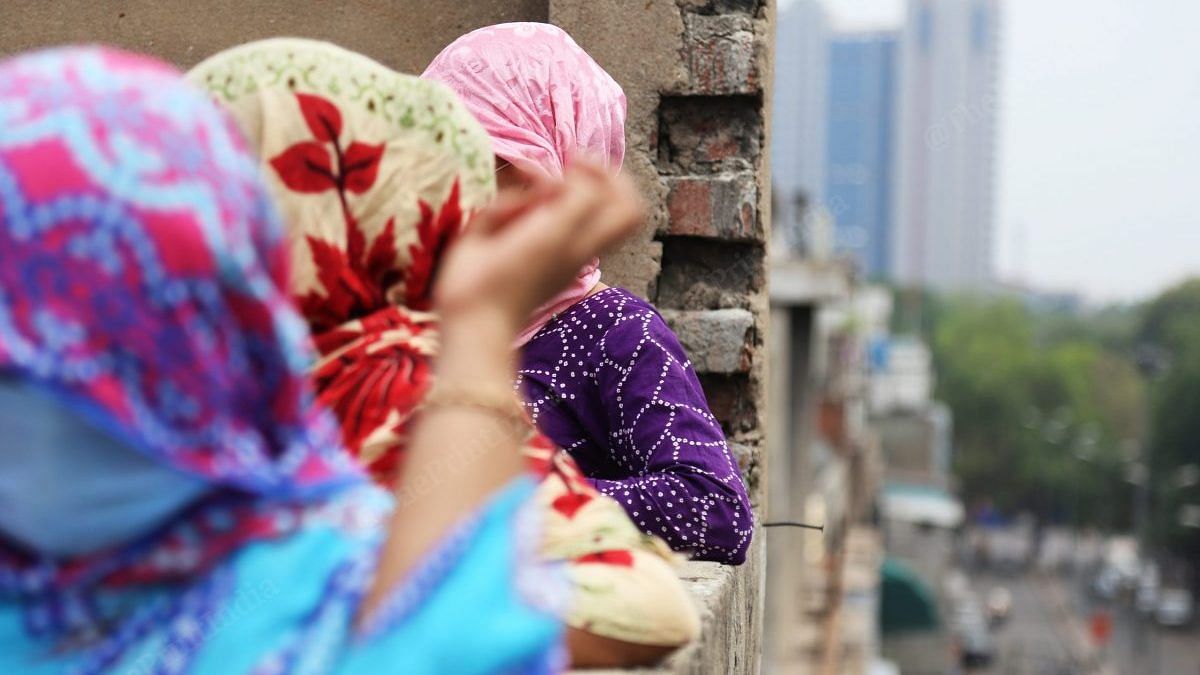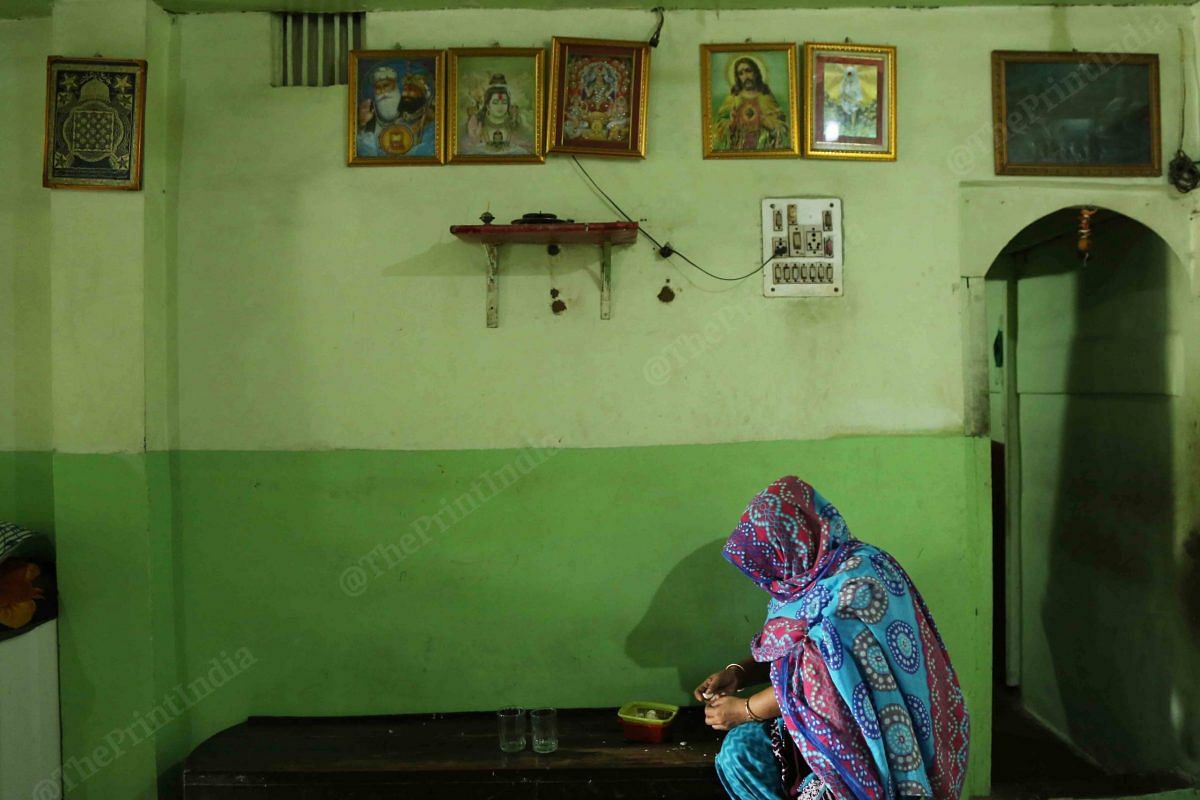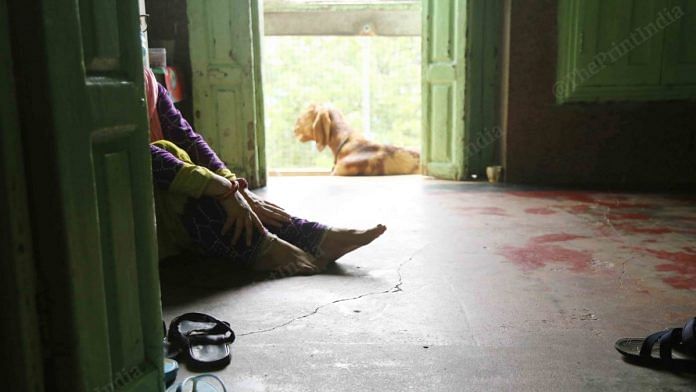Savita’s bright cherry-red lipstick is in sharp contrast to the desolation in her eyes. The 55-year-old sex worker from Delhi’s GB Road has as much to fear from police as she does from her clients.
Her emotions veer from bitterness to sorrow to anger as she recalls her experience. “Eight years ago, a customer gave me a fake currency note. I had no idea that it was fake, but the police arrested me for possessing it. I was behind bars for two-and-a-half months where I was beaten up and forced to clean toilets,” she recalls. Savita added that a policeman who used to threaten her falsely implicated her in the case.
On 19 May, the Supreme Court passed an order recognising sex work as a “profession”, saying they are entitled to equal protection under the law. Savita and her colleagues welcome the order. But years of prejudice from society and the police—and in some cases physical abuse—aren’t going to do away the fear and cynicism that run deep overnight.
Also read: Banned in 1988, this ‘religious’ practice still forces Telangana’s Dalit women into sex slavery
Will things really change?
Sex workers in GB Road claim that police atrocities against them are rising by the day. “Sometimes they come to the kothas (brothels) and threaten to jail us,” says a sex worker.
Savita says policemen frequently come to GB Road to “collect money”. “They ask us for Rs 200-300. Sometimes they drive away our customers by intimidating them. We are helpless.”
Such atrocities play out in every part of the country, and while the Supreme Court’s directions won’t change their situation overnight, it will empower them to fight back—legally.
A 2014 paper authored by four organisations, including Veshya Anyay Mukti Parishad (VAMP), cited a pan-India survey of 3,000 sex workers who detailed their experience of police violence. Half of the people surveyed said they had been verbally abused by the police. About 35 per cent admitted that they had been beaten up, pulled by their hair and/or hit with belts.

A more recent work, ‘Raided’, published by the Sampada Grameen Mahila Sanstha (Sangram) in collaboration with VAMP and Netherlands-based RightsforChange found that under the Immoral Traffic (Prevention) Act, 1956, sex workers are often treated as ‘immoral’ and ‘smugglers’. The study found that police violence against sex workers encouraged the rest of society to follow suit.
Based on interviews with sex workers, the study also showed how police often misuse the law to justify violence, fines, extortions and raids, which dampens sex workers’ expectations from the law. Many alleged that the police also follow the practice of bonded labour and harassment while keeping the women in custody.
NGOs say that women ‘rescued’ from this profession are also forced to provide sex services in rehabilitation homes.
Also read: ‘Sex work not illegal? Should sex workers be arrested?’ 4 questions SC has asked Modi govt
Destigmatising sex work
The Supreme Court’s directions need to be followed by action on the ground, one that involves sensitising the police—and media. “The SC has ordered a survey of protective homes and institutions such as Nari Niketan or Mahila Griha and to review cases of women who have been detained forcibly so that they can be released. State governments should take up the survey on a priority,” says Tripti Tandon, who was part of the panel constituted by the Supreme Court in 2011 to look into the rehabilitation of sex workers.
“The court observed that police should be sensitised. It will be interesting to see who is entrusted with this responsibility,” Tandon said. “The court has entrusted the legal service authority at the national and state levels to help in securing legal rights of sex workers. In most cases, sex workers are unable to find legal aid while everyone else gets access to lawyers.”
It’s not just law enforcement agencies that need to change their attitude towards sex workers. “In our legal process, sex workers are treated as objects. An adult who can speak her own mind is not even allowed to be heard. That is why this decision by the SC becomes important that the police should work within its own ambit,” says Tandon.
Also read: There’s an economic and social case to decriminalising sex work
Insensitive media
NGOs working with sex workers allege that often members of the media accompany the police. According to the authors of ‘Raided’, “they work hand-in-hand to humiliate sex workers and turn raids into sensational news items”. This is a violation of privacy.
Media can be as prejudiced as the police while reporting on sex workers. Reports published by Unesco and other journals show how Indian media resorts to stereotyped reporting of sex workers, with little or no effort to correct such prejudices.
Media’s lack of sensitivity has ruined the lives of many sex workers. Hamida (name changed), a 57-year-old sex worker from Gujarat’s Surat and member of All India Network of Sex workers, stressed on the need for privacy. “We are very happy with this verdict by the court. During the raids, the media take our photos and write filthy things about us. I come from an extremely poor family. I do this to support my family. I have a daughter who is married into a decent family. Her in-laws don’t know about the work I do,” Hamida said.
Her greatest fear is that if she is arrested, her identity will be revealed and her photos will be published. “If that happens, my daughter’s life will be ruined.”

Also read: For sex workers on Delhi’s G.B. Road, Covid has robbed them of a livelihood like no other
Battle continues
Sex workers want their profession to be decriminalised. Under the Immoral Traffic (Prevention) Act, 1956, voluntary sex work isn’t illegal. The Bombay High Court had ruled in a 2020 case that voluntary sex work wasn’t a criminal offence or punishable under any law.
Bharti Dey, former secretary of Durbar Mahila Samanwaya Committee (DMSC) and a member of the Supreme Court panel, says, “The panel worked on three subjects — anti-trafficking, dignity, and rehabilitation. We worked on this for five years before submitting our recommendations.”
DMSC was established in the 1990s to fight for labour rights and dignity of women engaged in sex work. A collective of more than 65,000 sex workers from West Bengal, the DMSC fights for their rights through its self-regulatory board, a community-led body that deals with anti-trafficking in the state.
Durbar claims to have solved a total of 1,090 cases of trafficking until 2019. Of these, 861 cases involved minors and 229 women who didn’t want to enter this line of work. The problem is that such instances of trafficking and exploitation are used to crack down on voluntary prostitution.
“Many people are congratulating us for this order, but even the Supreme Court cannot change the attitude of the people towards sex workers by just accepting the facts/recommendations. Its verdict should be implemented too. Only then some changes can be seen,” Dey said.
Change, however, will take time. For now, Savita braces herself for the humiliation and censure she faces every time she goes to court to fight the eight-year-old fake currency possession case.
Names of sex workers have been changed to protect their identity.
(Edited by Prashant)



